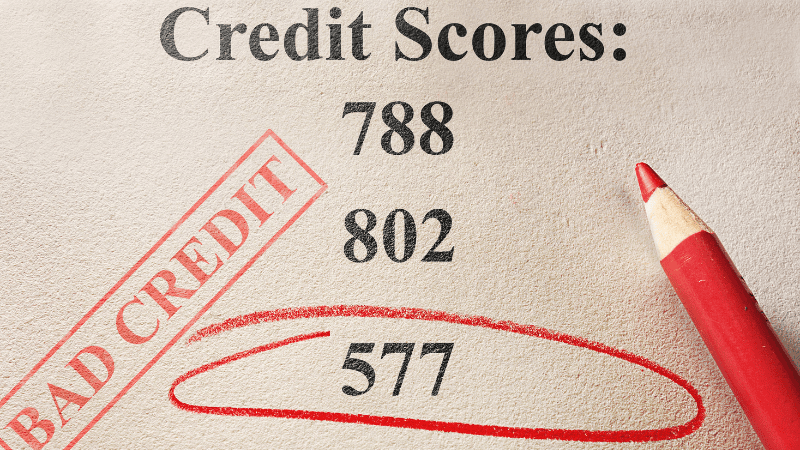Refinancing your mortgage or auto loan can be a strategic financial move, but many borrowers worry about the potential impact on their credit score.
Understanding how refinancing affects your credit is crucial for making informed decisions.
This guide will help you navigate the intricacies of refinancing and its relationship with your credit score, ensuring you’re well-prepared for the refinancing process.
Benefits:
- Available everywhere except HI, NY, & DC.
- Expert guidance to navigate complex financial decisions.
- Fast, efficient process from application to closing.
- Flexible loan options to fit every lifestyle.
- Personalized support every step of the way.
Benefits:
- Lending in MI, OH, TN, FL, CO, MN, & PA
- Quick responses, so you’re never left waiting.
- Loan Options designed to fit your financial goals.
- Simple Application Process with Clear Communication
- Over 7,000 Five Star Reviews
Benefits:
- Available in CA, FL, GA, IL, MD, PA, and TX
- Expertise & Guidance
- Credit Assistance
- Trust & Transparency
- Affordable Lending Options
How Does Refinancing Affect Your Credit Score?
When you refinance, you take out a new loan to replace your existing loan. This process can have a multifaceted impact on your credit score.
Initially, refinancing may cause a slight dip in your credit score due to the hard credit inquiry conducted by lenders. However, this is usually temporary.
A hard inquiry may cause a slight dip in your score, usually ranging from 5 to 10 points. This impact is generally temporary, lasting for about 12 months.
Over time, if you manage your new loan responsibly and make consistent monthly payments, refinancing can positively affect your credit history, contributing to a better credit score in the long run.
Will refinancing hurt my credit over time?
As mentioned, you may see a temporary dip in your credit but your score moving forward will depend on how you handle your finances moving forward.
Your credit score varies depending on your previous credit account history.
However, refinancing and promptly paying off your original loan can improve your payment history, which is a significant factor in determining your FICO score.
Maintaining a low credit utilization ratio and not accumulating new debt during this period can further enhance your credit profile, ultimately leading to a more favorable credit score.
A positive payment history is also crucial in determining your credit score, and consistent payments on your new loan can bolster your creditworthiness.
Will Refinancing a Car Loan Lower My Credit Score?
Refinancing a car loan generally involves taking out a new loan to pay off your existing auto loan.
When you initiate this process, lenders will perform a hard credit check, which may temporarily dip your credit score.
However, like mortgage refinancing, the long-term effects of a new auto loan can be positive if you manage it effectively. Timely payments help improve your payment history, a critical credit score component.
How does the rate shopping process impact your credit score?
During the refinancing process, rate shopping can impact your credit score.
However, when you apply for multiple loans in a short period, credit bureaus tend to treat these inquiries as a single inquiry, minimizing the potential negative impact on your credit score.
This is beneficial as it allows you to compare different loan options without severely affecting your credit.
Can multiple inquiries for refinancing have a cumulative effect?
Yes, multiple inquiries for refinancing can have a cumulative effect on your credit score, primarily if they occur within a short timeframe.
While credit bureaus typically recognize that consumers rate shop for the best loan terms, leading to a practice where multiple inquiries are grouped as a single inquiry, there are limits to this approach.
If the window for rate shopping extends beyond 30 days, each inquiry may be treated individually, leading to a more significant cumulative impact on your credit score.
What Negative Impacts Can Refinancing Have on Your Credit Report?
Refinancing can introduce several negative impacts on your credit report, primarily due to the hard credit inquiry that occurs when applying for a new loan. This inquiry can temporarily decrease your credit score.
Closing old credit accounts prematurely as part of the refinancing process can also negatively impact your credit utilization ratio and credit history length.
A lower average age of credit accounts can also detrimentally affect your score.
How do credit bureaus view refinancing?
Credit bureaus typically view refinancing as a regular part of financial management.
While the immediate effect of a hard inquiry can cause a minor dip in your credit score, credit bureaus understand that borrowers refinance to secure better loan terms or consolidate debt.
They analyze your overall credit profile, including your payment history and existing debt levels, to determine your creditworthiness.
How to Protect Your Credit When Refinancing
Borrowers should check their credit scores and reports before starting the refinancing process to minimize the credit impact.
Understanding your credit profile allows you to identify any issues that need addressing, such as outstanding debts or errors on your report. This can help you anticipate the interest rates you may qualify for and negotiate effectively with lenders.
What are the best practices for refinancing without hurting your credit?
To refinance without hurting your credit, following several best practices is essential.
- Check your credit score and report before applying for refinancing, ensuring you know your current credit standing. This will help you identify potential issues impacting your loan terms.
- Limit the number of hard inquiries by consolidating your applications within a short period—ideally 30 days—to minimize the impact on your credit score.
What Should You Know About Credit Inquiries When Refinancing?
A hard credit inquiry occurs when a lender reviews your credit report as part of the loan application process, which can affect your credit score.
A hard inquiry may cause a slight dip in your score, usually ranging from 5 to 10 points.
This impact is generally temporary, lasting for about 12 months.
Still, multiple inquiries within a short time can compound this effect and lead to a more significant impact on your credit score.
What types of inquiries are made during the refinancing process?
During the refinancing process, two main credit inquiries may occur: hard and soft.
- A hard inquiry is made when you formally apply for a new loan, such as when a lender checks your credit report to assess your creditworthiness.
- A soft inquiry occurs when you check your credit report yourself or when a lender assesses your credit for pre-qualification purposes without impacting your credit score.
How Does the Refinancing Process Work?
The refinancing process for a mortgage typically involves several key steps.
- Borrowers should assess their financial situation and determine if refinancing makes sense based on their goals, such as lowering monthly payments or accessing equity. consider the remaining term on your existing loan; refinancing may not be beneficial if you are close to paying it off.
- Check your credit score and report to identify any potential issues before applying is essential. A higher credit score can help you secure better loan terms, such as a lower interest rate or reduced monthly payment.
- Once ready, borrowers can shop for the best refinancing offers, comparing interest rates and loan terms from different lenders.
How long does the refinancing process typically take?
The refinancing process can vary in duration depending on several factors, including the type of loan and lender responsiveness, but typically can take a few days.
From application to closing, lenders will thoroughly review your financial situation, including credit checks and income verification.
The process may be extended if there are complications with documentation or appraisal delays.
The takeaway: Does refinancing an auto or mortgage loan hurt your credit?
The answer to this will depend on your financial situation and goals.
An initial dip in your credit score may occur around the time of your application, but with diligence in making your payments and keeping soft inquiries within the same 30-day time frame, your score will recover in a few months time.
With that peace of mind, it’s up to you to assess your finances and plans for your home or vehicle to determine if refinancing is right for you.
Our advise is based on experience in the mortgage industry and we are dedicated to helping you achieve your goal of owning a home. We may receive compensation from partner banks when you view mortgage rates listed on our website.






